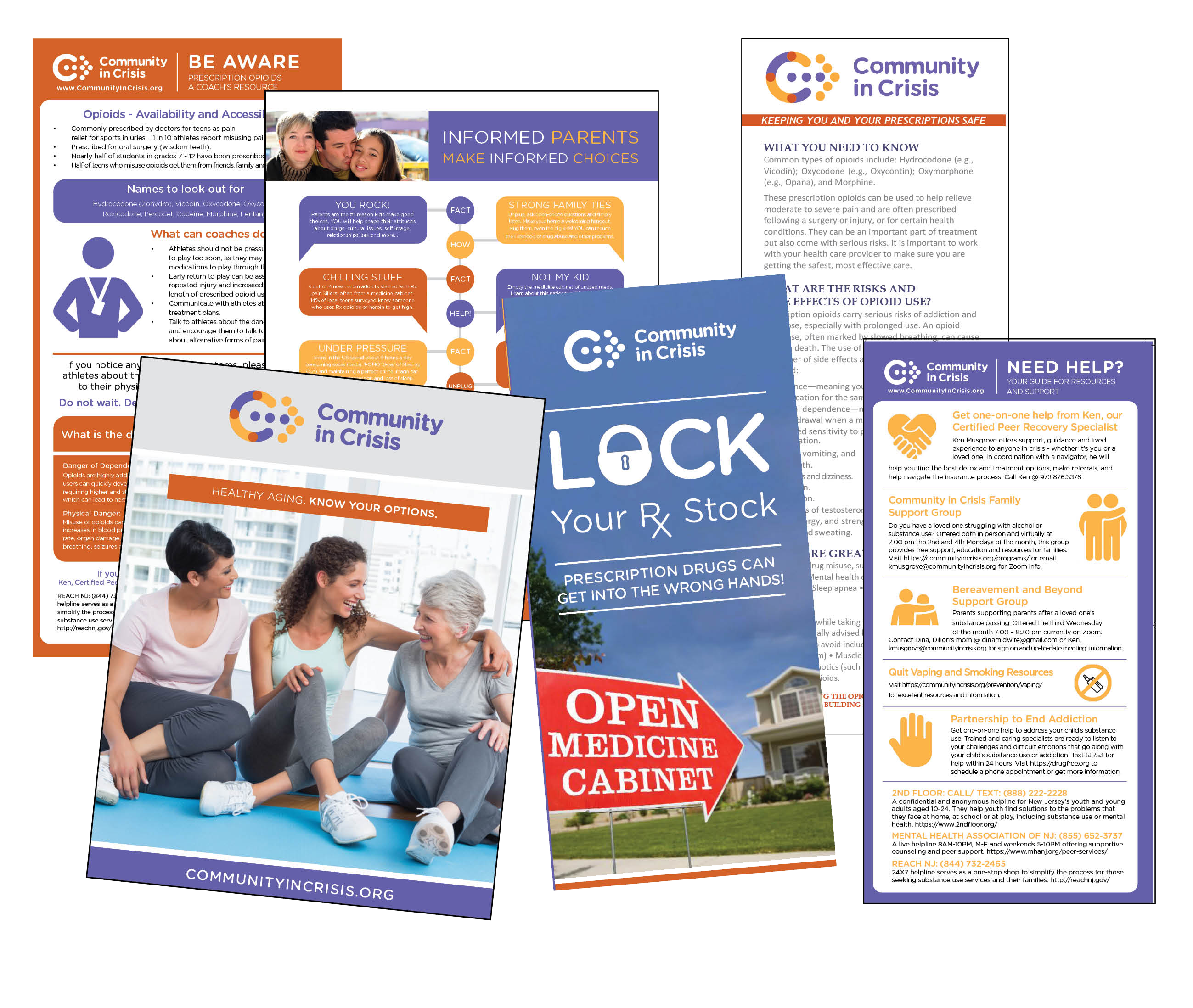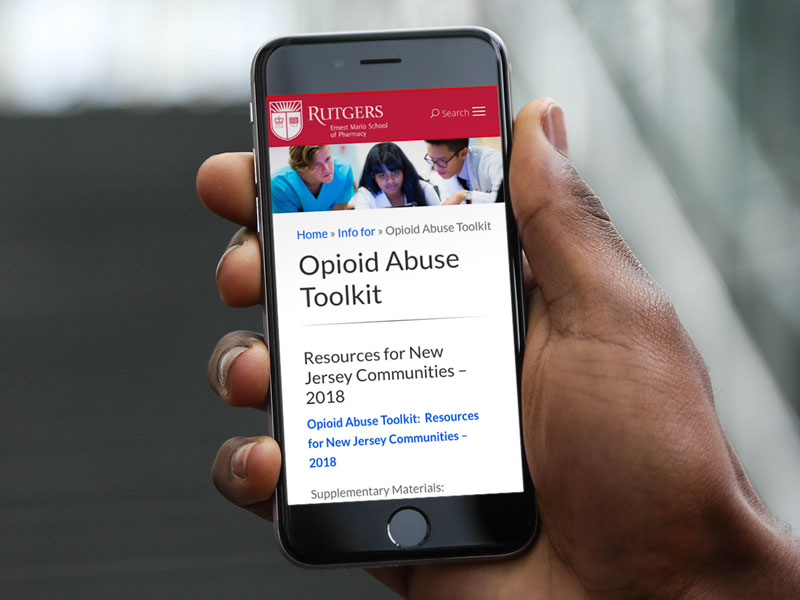
Community Prevention Toolkit
Community In Crisis Prevention Toolkit
Our toolkit offers you a selection of printed materials that you can use to educate and support your own community. All materials are available for download. If you wish to co-brand these materials, please contact Andi Williams, Executive Director.
These printed materials, as well as a variety of prevention educational programs and workshops, help communities grow and thrive. We have resources for coaches, youth athletes, parents, educators, prescribers, dentists, pharmacists, older adults, and realtors.
To download these materials, please enter your email here:
The Ernest Mario School of Pharmacy Rutgers University and the Horizon Foundation for New Jersey, in partnership with Community in Crisis, embarked on an initiative to increase education on opioid and marijuana use and misuse in New Jersey communities.
Opioid Use and Misuse Toolkit
Together, we developed an Opioid Use and Misuse Toolkit to provide resources for New Jersey communities using the expertise and research of Rutgers University pharmacy students in conjunction with Rutgers faculty and clinicians.
Best practices and opioid resources were compiled from a number of sources including the Centers for Disease Control and Prevention (CDC), U.S. Drug Enforcement Administration (DEA), and the National Institute on Drug Abuse for Teens, and Operation Prevention.
The toolkit is free and available to anyone. The toolkit includes a compilation of best practices to plan and execute various community initiatives and provide resources for those struggling with opioid use disorder and their families. Specific materials covered within the toolkit include:
- Section 1: Event planning overview
- Section 2: Building a team through volunteer recruitment
- Section 3: Community outreach initiatives (e.g. local health fairs and social media campaigns)
- Section 4: Drug overdose prevention and resources for dealing with addiction
- Section 5: Drug take-back initiatives
- Section 6: Middle school/high school outreach
- Section 7: University outreach initiatives
The toolkit also includes supplemental posters and presentations that are adaptable to your needs covering topics such as: increasing awareness through social media, how to administer naloxone in cases of overdose, advertising for drug take-back days, information for parents, and resources for teens to contact for further assistance. As with the toolkit, these posters and presentation templates are all free to use.
Additional Community in Crisis materials, including presentations, tutorials and opioid information forms for athletes, are also available. Please email info@communityincrisis.org.
Prescription drugs, specifically opioids, are one of the most commonly abused substances by teens 14 years and older in the United States. In 2015, an estimated 276,000 adolescents were non-medical users of pain relievers, with 122,000 being addicted to these substances1. Additionally, there is a high prevalence of marijuana use in this population, with over 3000 teens using it for the first time every day.
These trends have been on the rise throughout recent years and are projected to increase unless we act now. Moreover, current research shows that it is imperative to intervene in the drug abuse process as early as possible to prevent future issues.
The toolkit is free to use and you may select any and all of the toolkit materials you find useful. While we are happy to have you include the name of your organization on any presentation you make using toolkit materials, we request that you include all the acknowledgments and copyright credits as listed in the toolkit so that contributors and creators receive the credit due them.
In addition, while you may excerpt materials as you choose, you may not modify the content provided (e.g. changing text or figures) without prior written permission of Rutgers or the listed copyright holder. That is to ensure the consistency and accuracy of the materials provided.



